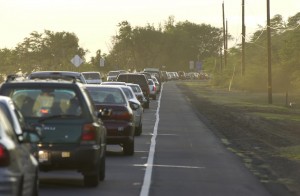The Supreme Court of Appeals dismissed arguments of an insurer and rental company and awarded indemnification to a man who suffered injuries caused by a vehicular accident. Empire Fire and Marine Insurance and Enterprise Rent-A-Car were ordered to pay Wang-Yu Lin for damages and injuries sustained in a road mishap.
 Lin rented a car from Enterprise for a trip he planned to take with some students. He signed a contract that stated that if an unauthorized driver uses the car, Lin’s rights and privileges under this said agreement might be affected. He then proceeded to buy additional insurance from Empire.
Lin rented a car from Enterprise for a trip he planned to take with some students. He signed a contract that stated that if an unauthorized driver uses the car, Lin’s rights and privileges under this said agreement might be affected. He then proceeded to buy additional insurance from Empire.
During this trip, Lin got tired and weary and asked a female companion to take the wheel. However, the driver, whose name was Shin Yi-Lin lost control of the vehicle and the car was totalled. Lin suffered massive injuries and had to undergo intensive treatment and rehabilitation. His hospitalization bills reached $300,000. He filed for claims which were later turned down by Empire.
Lin filed a lawsuit in 2006 against Empire and Enterprise. In the same year, Lin and the defendants sought for summary judgment.
In her decision, the presiding Judge Jennifer Bailey Walker ordered the defendants to pay Lin’s hospital bills and other related claims. She cited that state auto insurance policy laws cover people who were given permission to drive. Since Shin Yi-Lin was given consent by Lin to drive, the latter had a right to file for claims and compensation.
Defendants then sought for appeal. During succeeding trials, they argued to the Justices that state law on car rental companies should be applied to their case, in that coverage would only include renters and authorized drivers. Following this law, replacement driver Shin Yi-Lin therefore should not be considered an authorized driver and that the defendants should not be held liable for injuries and damages caused by the accident.
Court of Appeals agreed that their arguments made sense, but they still ruled in favour of Lin. They said that the defendants should have raised their issues during the initial trial and that the Appeals court was not the right venue to decide on such matters. Although they admitted that the defendants raised a valid point, they saw that Judge Walker’s decision was consistent with the law. The Justices had no choice, but to affirm the lower court’s earlier ruling.
They also hinted that Empire and Enterprise would have had a favourable decision if they had raised their arguments during the initial trial with Justice Walker.


